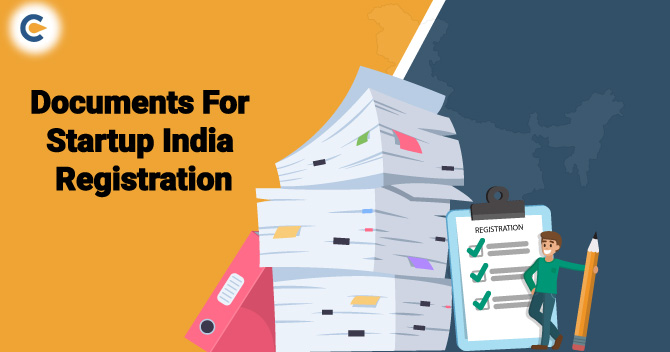India is among the leading apparel exporter in the world. Before you unpuzzle how to start a textile business, you must get accustomed to the ground reality behind it. The textile sector is thriving like never before, making it a perfect destination for aspiring business minds. The demand for Indian apparel has kept on rising both in the domestic and overseas markets ever since the industrial revolution. From clothing to home decor, textile is an integral part of everyone’s life. Its demand is thriving and ever-evolving. Today, Indian export accounts for 1/3rd of the overall total production, giving much-needed thrust to the global textile market.
Facts around Indian Textile Industry
- Presently, India ranks amongst the top cotton and jute exporters worldwide. Also, our nation is poised at the second position when it comes to shipping handwoven fabrics and silk.
- India is leading from the front in the silk and cotton textile industry. The textile industry accounts for two percent of the nation’s GDP and 12 percent of export valuation.
- In 2018-19, India got the hold of 5 percent of the textile market.
- The Indian government has introduced various schemes for the betterment of the textile sector. The scheme Technology Upgradation Fund Scheme (TUFS) has already been launched to strengthen the funding environment. The GOI has earmarked 2.38 billion dollars between 2016-2022 for the said scheme.
Ways to get involved with the Textile Business
There are many ways to get started with a textile-related business. Some of them include retailers (online or offline), distributors, and manufacturers. Each role attracts different business approaches and legalities. Let’s have a glance over the legal requirements associated with these options.
- Garment Retailer: Garment retailing is the safest business venture that is growth oriented. In the initial phase, you may not reap as much profit as you want, but staying longer in the business will do the trick. You can get started with this venture either via online or offline channels or both, depending on your investment. Coming to the legalities, here are some legal permits you need to secure beforehand.
- Shop Act license (offline outlet)
- GST registration
- Trade license
- Distributor: The distributor caters to the requirements of several retailers working in a specified region. Being a distributor is not as easy as being a retailer since it has to address increased legalities and extended operations. However, that hardship comes with augmented profitability which will keep rising if you proceed strategically. The followings are legal permits you would need to set up a distributor-based business in India.
- Business registration
- Shop Act registration
- Trade Registration
- Fire NOC
- GST registration
- Manufacturer: Starting as a manufacturer is the costliest way to get started with a textile venture. First of all, you will need to secure ample space, perhaps in an industrial area, to set up a full-fledged unit. Your next step would be the procurement of cutting-edge machines which are low on downtime and high on performance. The amount of capital required to get all these resources would be on the higher side. Therefore, you can approach banks to avail of much-needed funding. As far as the legalities of this venture are concerned, you would be required to secure the following licenses before you go full throttle.
- Business registration
- Factory license
- Fire NOC
- Pollution NOC
- BIS certification
- ISO certification
List of Machines Required to make Textile Business Operational in India
Following is the list of all machines required to make the textile business operational:
- Fabric GSM testing machine,
- weighing scale,
- Meter scale,
- Visual inspection machine
- Fabric spreading machines
- Pattern making machines
- Cutting tables
- Fusing machine
- Piping cutting machines
- Ply number machine
- Heat transfer printer
- Swing machines (single and multi-needles)
- Overlock sewing machine
- Button sewing machine
- Snap button attaching machine
- Spotting guns
- Tread trimmers
Points to be Considered Before Starting the Textile Business
The following are important points that should be considered before starting the textile business in India:
- Common legal structures available for business registration include the private limited company, partnership firm, Limited liability partnership, one-person company, etc.
- Private limited companies and one-person companies fall under the Companies Act 2013. Whereas the structures like partnership firms and LLPs come under the Partnership Act 1932, and the LLP Act, 2008, respectively.
- Fire NOC is mandatory for facilities 15m high and for those where the chances of fire-related accidents are relatively higher. It is granted by the Fire department of the respective state.
- Pollution NOC is mandatory for pollution-prone industries or facilities falling under the Red and Orange category. State Pollution Control Board reserves the exclusive right to grant this permit.
- Common documents to secure fire NOC include business registration, factory license, site plan (floor-wise), detail of firefighting equipment, etc.
- Factory license is mandatory for production facilities (power or non-power-driven) where the workers’ number is greater than 20. The State Labour Department grants this license against the prescribed form and applicable fees.
- On-site inspection of the production premises is a vital part of the BIS registration process. Garment production units require this license to affirm that their products adhere to the underline standards.
- ISO 9001 is a way to make a significant presence in the overseas market. Since this standard has global recognition, securing the same would be beneficial for the textile business.
Conclusion
Starting a textile[1] business isn’t as complicated as it seems. As long as you keep the tap on the underlying requirements, you won’t experience any legal hassle in establishing your business. Unlike other legal entities, the textile business is also bound to follow some compliances of applicable Act(s) to stay operational. You have to invest ample time in overseeing the legal aspect of your business. Doing so can help your firm witness sustained growth in the coming years.
Read Our Article:How to Set up Garment Manufacturing Business in India?











